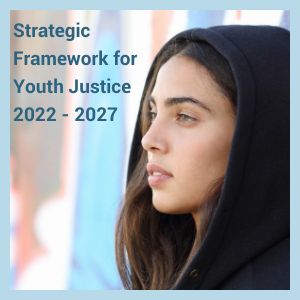 Justice Minister Naomi Long has launched a strategy to support women and girls in contact with the justice system.
Justice Minister Naomi Long has launched a strategy to support women and girls in contact with the justice system.
The strategy focuses on women and girls who are at risk of offending or who have offended, and seeks to intervene at the earliest opportunity to improve outcomes for all those affected, including victims, families and communities.
Naomi Long said:
“Women and girls in contact with the justice system are thankfully small in number.
However, we know that what we do as a justice system can have a significant and long-lasting ‘ripple’ effect not only on their lives but the lives of their families and wider society.
“This strategy presents a significant opportunity to create and deliver meaningful and positive change. It focuses on what can be done to prevent and divert women and girls from crime, supporting them to change in the community, and helping improve their lives and circumstances on the occasion they enter and leave custody.
The Minister added:
“In shaping the strategy we have spoken to some of the women and girls who have a lived experience of the justice system, as well as various partners in the voluntary and community sector. By understanding the circumstances which brings a girl or woman into contact with the justice system, and, by providing alternatives to resolve some of the underlying issues, we can deliver better outcomes for all.
“The strategy also, importantly, encourages women and girls to take responsibility for their own actions and address the harm that has been caused by their behaviour.”
The new strategy, which runs from 2022 to 2029, will be delivered under three key themes; ‘Supporting Change: Early, ‘In the Community’, and ‘In and beyond Custody’ and will provide guidance, training and services to support women and girls to move away from offending; tackle offending behaviour by focusing on and addressing underlying issues, including addiction, mental health and a history of trauma; and support women and girls in and beyond custody.
At the official launch of the strategy in the Long Gallery at Parliament Buildings, the Spanner in the Works Theatre Company performed the ‘Runny Honey’ play by Patricia Downey, which, in an engaging and thought-provoking way, highlights the issues and challenges that many women and girls in contact with justice, and in custody face.





